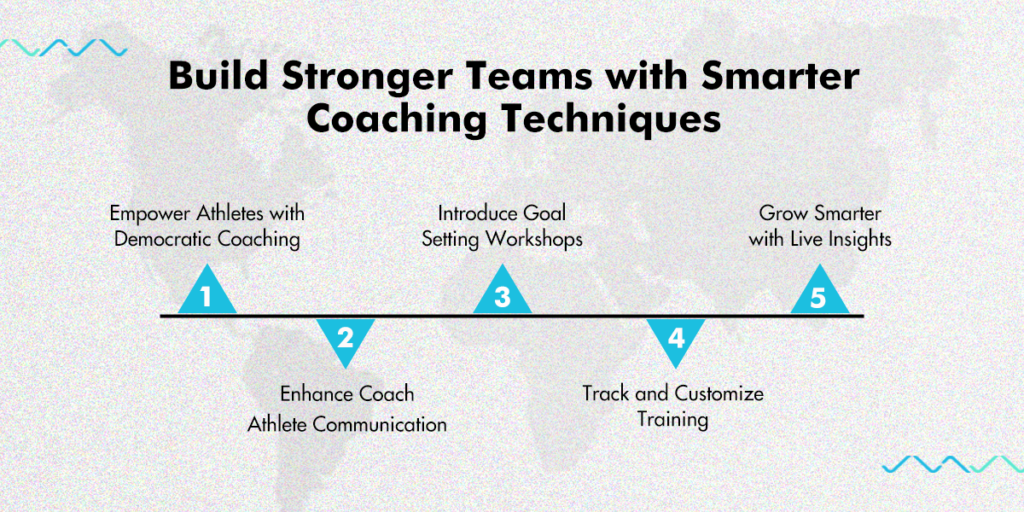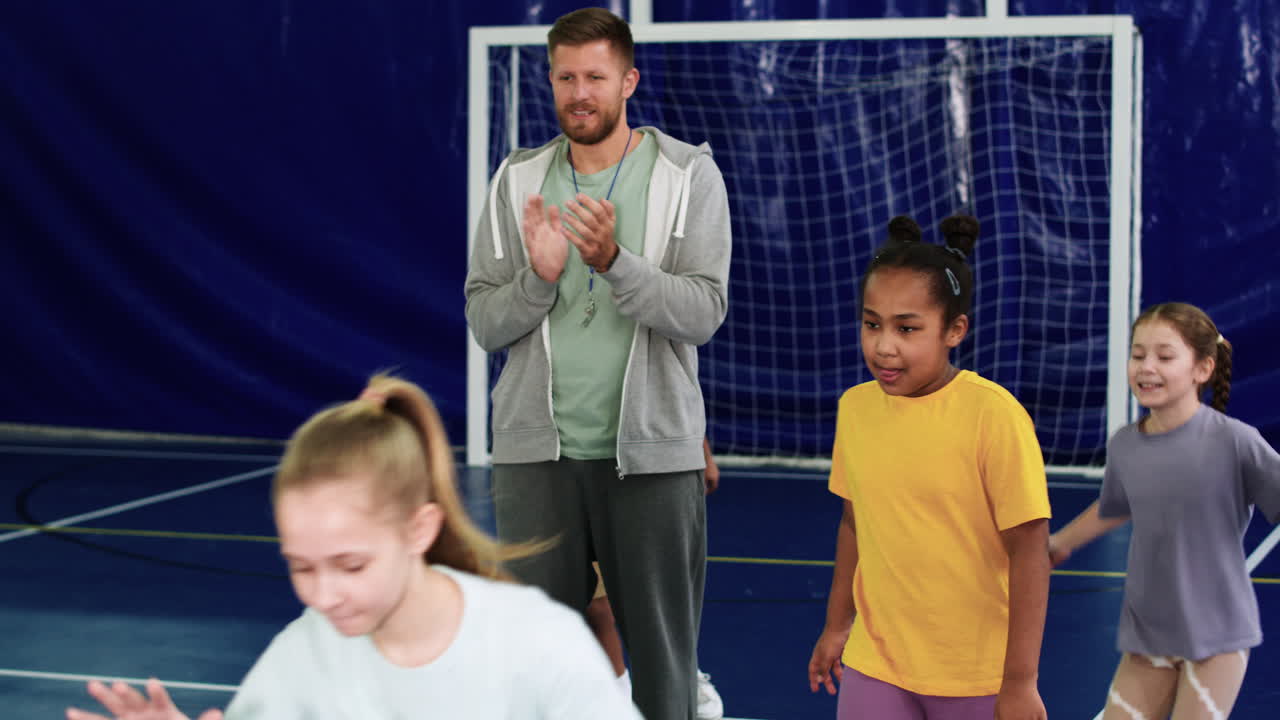Table of Contents
ToggleThe difference between a good team and a great one often lies not in talent but in how that talent is coached. Whether you’re managing a youth club or training competitive athletes, applying the right sports coaching techniques is essential to unlocking performance potential.
As a coach, trainer, or instructor, your challenge isn’t just running drills, it’s about building mentally strong, focused, and cohesive athletes.
With insights from sports psychology, adaptable coaching styles, and digital tools like Checklick, you can elevate your team’s performance and simplify your workflow.
Coaching in the Age of Complexity
Most coaches today juggle numerous responsibilities from designing training sessions to tracking player progress and communicating with parents. The traditional approach of verbal feedback and physical drills isn’t enough in modern sports.
Athletes today face immense pressure, and they need more than physical prep, they need mental focus in sports, emotional resilience, and actionable feedback.
Without modern systems for tracking development, providing structure, and integrating psychology into your coaching, teams stagnate.
This is where Checklick, a leading athlete development tracking software steps in.
Sports Coaching Backed by Checklick
At Checklick, we provide a centralized sports club management software and athlete development software that integrates Digital Evaluations, customized training programs, and performance tracking in one Digital Storefront.
Whether you’re working on sports coaching techniques for beginners or advanced athletes, Checklick equips you with tools to:
- Track and manage progress across seasons
- Offer transparent evaluations for athletes and parents
- Customize your coaching style with data-driven feedback
- Organize schedules, teams, and development plans digitally
5 Sports Coaching Techniques That Work

1. Democratic Coaching Style
Involving athletes in decision-making fosters engagement and accountability. This democratic coaching style allows them to co-create goals, routines, and team rules encouraging deeper buy-in and motivation.
How to Implement This Technique:
- Encourage athletes to participate in setting training objectives
- Use sports psychology activities for students like:
- Team goal-setting workshops
- Peer feedback sessions
- Reflection journals after practice or games
- Host regular team meetings to discuss performance and improvements
- Empower team captains to lead warmups or drills
With Checklick’s Digital Evaluations, you can track athlete progress, share evaluation reports , Enable athletes to suggest adjustments based on their data and reinforce ownership through real-time feedback
2. Holistic Coaching Style
This approach sees athletes as whole individuals, not just performers. It focuses on personal development alongside sports performance.
A holistic coaching style supports emotional intelligence, discipline, and leadership. Coaches should integrate:
- Visualization sessions
- Journaling for emotional regulation
- One-on-one check-ins on mindset
Checklick’s platform allows you to set up customized mental and physical milestones in your athlete development tracking software, tracking more than just drills.
3. Performance Feedback Through Digital Evaluations
One of the biggest gaps in coaching today is the lack of structured feedback. Athletes need to know how they’re doing, and where they can grow.
Using Digital Evaluations in Checklick allows:
- Clear visual tracking of performance
- Automated evaluation reports to share with athletes and parents
- Long-term insights that inform training programs
Break down evaluations into mental, technical, and physical components to align with key components of sports psychology.
4. Tailored Coaching Methods
Every team is unique. Understanding and adapting to different types of coaching methods can drastically improve communication and motivation.
Here are the most common methods:
- Autocratic coaching style: The coach sets the rules and makes decisions. Best for high-stakes environments or inexperienced teams.
- Laissez-faire coaching style: Minimal intervention. Great for highly self-motivated teams.
- Democratic coaching style: Collaborative and empowering.
- Holistic coaching style: Balanced and nurturing.
Knowing what are the 3 types of coaching styles or what are the 4 types of coaching helps coaches pivot their approach as needed.
With Checklick’s sports club management software, coaches can assign specific coaching styles and techniques to different teams or individuals all within their Digital Storefront.
5. Mental Skills Coaching
Mental preparation is equally important as physical training. Helping athletes focus, overcome pressure, and perform under stress is vital.
Use these methods:
- Teaching how to focus when playing sports
- Breathing and centering exercises
- Visualization techniques
Encourage athletes to journal before and after matches using Checklick to promote self-reflection.
Who Are These Techniques For?
These coaching methods are ideal for:
- Coaches working with youth or club athletes
- Trainers managing performance in competitive leagues
- Instructors guiding long-term athlete development programs
By combining these approaches with tools from Checklick, coaches gain complete oversight of each athlete’s journey, from performance feedback to mental well-being and beyond.
What You Can Expect
When integrating these techniques and Checklick’s tools into your program, you’ll see:
- Higher athlete engagement and trust
- Measurable improvement in performance metrics
- Greater focus and resilience in athletes
- Simplified team management through a unified Digital Storefront
- Seamless communication and transparent evaluations
Start Winning with Smarter Coaching With a Free Trial - No Credit Card Required
Unlock your team’s full potential with proven sports coaching techniques and modern tools that work. With Checklick’s athlete development tracking software, you can:
- Track progress through Digital Evaluations
- Streamline management with sports club management software
- Focus on developing the whole athlete mentally and physically
Start your athlete development software free trial today. Empower your athletes. Simplify your coaching. Win more on and off the field.
Frequently Asked Questions (FAQs)
The 5 C's Competence, Confidence, Connection, Character, and Creativity are essential for athlete growth. Integrating these with sports psychology strategies for improving performance builds strong mental focus and effective team dynamics.
The four styles are autocratic, democratic, laissez-faire, and holistic coaching style. Each supports different athlete needs and can be enhanced with sports club management software and digital evaluations through Checklick.
Effective sports coaching techniques follow four principles: individual development, clear communication, performance analysis, and mental resilience. Tools like Checklick’s athlete development software help coaches apply these consistently with measurable results.
The 5 R’s Recognition, Respect, Responsibility, Reflection, and Resilience guide athlete behavior and mindset. Combine these with sports psychology activities for students and structured digital evaluations for better athlete performance and growth.

